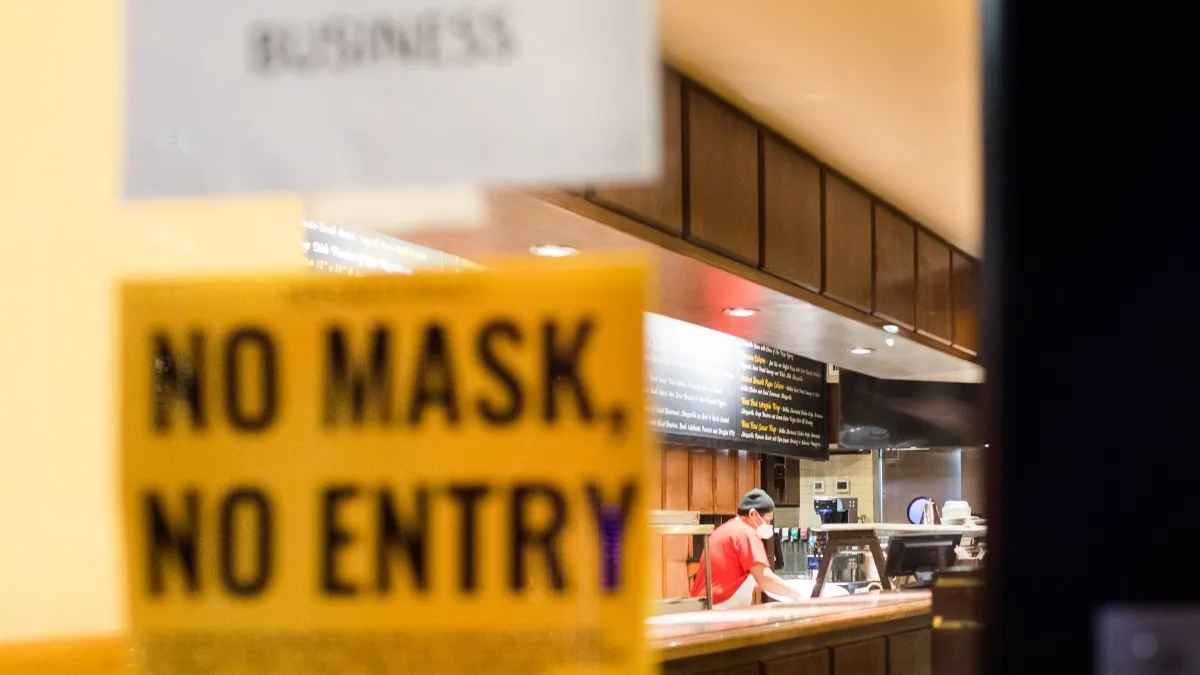The U.S. Department of Labor's focus is to enable employers to "open as promptly as we safely can" to preserve the "bonds" between employer and employee, Labor Secretary Eugene Scalia said on a May 11 webcast organized by the Northern Virginia Technology Council and the Consumer Technology Association.
"I'm certainly mindful that the longer we take to reopen, [the] more those bonds between employer and employee are weakened," Scalia said. He explained that this bond, and creating an environment such that workers want to return, is why he is a "big supporter" of the Paycheck Protection Program.
"The most challenging part of COVID-19, from the Labor Department perspective, has been how fluid and shapeshifting it is," Scalia said. "Things have moved very rapidly and often in unexpected ways."
After being confirmed for this role late in September 2019, Scalia was largely overseeing a growing economy. He shared the "stupendous" jobs report numbers from February 2020 to highlight how quickly things have changed.
Paid leave emerged as the first priority in the early stages of the pandemic, Scalia said, and then it "became less important to a lot of workers because the jobs weren't there and all of a sudden we needed unemployment insurance." He added that his department spent a lot of time helping states "deal with their very old and sometimes bulky computer systems to get those insurance benefits out."
While the nation's growing unemployment numbers are stark, Scalia cited recent Bureau of Labor Statistics data which shows that the job loss due to coronavirus is different from the last recession. He noted that temporary unemployment is the primary form of unemployment right now and said he anticipates many of those not working will resume in time.
As more employers push to reopen, DOL's Occupational Safety and Health Administration released guidance for sanitation and social distancing in the workplace. And as more industries and states reopen, there are lessons to be learned from the essential businesses that stayed open, Scalia noted.
"There are thousands of workplaces across the country that have been open all along and finding ways to keep safe. We want to use that, through guidance, through the example that others set, to keep workers safe," he said, later adding that "where necessary, we're prepared to bring enforcement actions as well."
For employers worried that individuals will prefer unemployment to work, Scalia said he shares that sentiment. To assuage those concerns, he explained that DOL's Office of Inspector General received an additional $26 million in budget "just to focus on potential abuses within the unemployment insurance program," and that he believes the incentive to go on unemployment over working is not very strong.
"The situation here is just so different where people are being put out of work, by no fault of their own, which often is the case, but really as a matter of public health and safety," he said. "That was the reason for this stepped-up benefit."
Some benefits were added as part of emergency measures, which are likely to subside soon. "The program that we adopted where everyone got $1200 was one that we were forced into a bit," Scalia said, later adding that "if anything is done past July 30 it would warrant a very careful look."
Like many others, Scalia said he believes the workplace is poised to change in many lasting ways, particularly telework arrangements and office layouts. While acknowledging the unfortunate economic circumstances, as well as the personal pains citizens are experiencing, he said he believes that the nation is pulling its resources together to overcome them.











